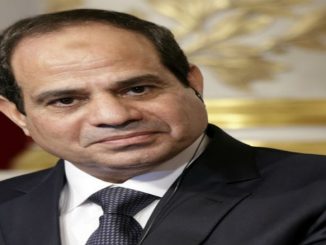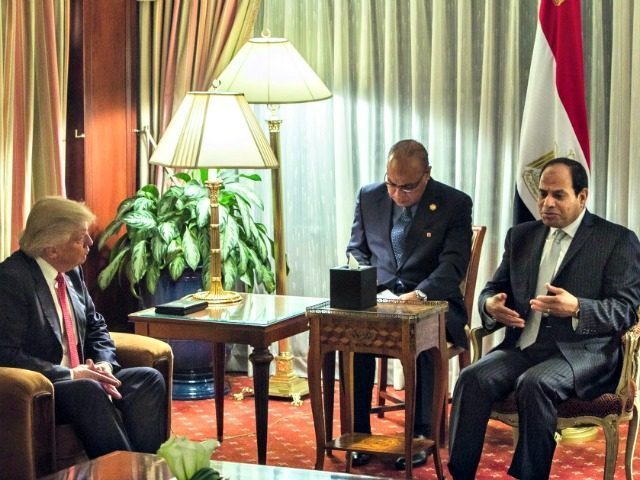The young people are the main assets of nations as they are the ones who lead the country’s development and modernization. However, in most countries -a youth bulge, which leads to an economic boom, are viewed by Arab autocrats as a threat—and with reason.
Youths with better education were on the front-lines of the uprisings of 2011 where they toppled rulers in Tunisia, Egypt, Libya and Yemen, and alarmed the kings and presidents of many other states. But their dreams have fallen apart in those countries except Tunisia as their countries have either went to civil war or their revolutions were stolen.
“The lot of young Arabs is worsening: it has become harder to find a job and easier to end up in a cell. Their options are typically poverty, emigration or, for a minority, jihad,” said The Economist in a report on Friday that was entitled, “The Ruining of Egypt“. The magazine highlighted the repression against the youth in the Arab countries in general and particularly in Egypt.
According to The Economist, Egypt under the al-Sisi rule is the most worrying country. “Nowhere is the poisonous mix of demographic stress, political repression and economic incompetence more worrying than in Egypt,” read the report.
The Middle East is where people are most desperate and most fearful as the next generation is expected to be worse than the current one. If the explosion occurred it will have negative repercussions throughout the world as the Arab populations that are growing fast. ”
“Although the proportion (of the population) who are aged 15-24 peaked at 20% of the total of 357m in 2010, the absolute number of young Arabs will keep growing, from 46m in 2010 to 58m in 2025,” according to the Economist.
Egypt , the largest Arab State, is central to the region’s future. Its fate is decisive to all the region; “if it succeeds, the Middle East will start to look less benighted; if it fails, today’s mayhem will turn even uglier,” said the Economist.
But Al-Sisi, the former Defense Minister who led the military coup in 2013 against the first democratically elected President Mohamed Morsi, has proved to be more repressive than Hosni Mubarak, who was toppled in the Arab spring,” said the Economist .
The regime is fragile as it depends only on the generous injections of cash from Gulf states, and to a lesser degree, by military aid from America. But, with all billions of petrodollars, Egypt’s budget and current-account deficits are gaping, at nearly 12% and 7% of GDP respectively. A bitter condition that led al-Sisi with all his nationalist posturing, he has gone beret in hand to the IMF for a $12 billion bail-out.
The situation in Egypt is deteriorating as the youth unemployment has exceeded 40%. The government is already full with do-nothing civil servants; and “in Egypt’s sclerotic, statist economy, the private sector is incapable of absorbing the legions of new workers who join the labor market each year. Astonishingly, in Egypt’s broken system university graduates are more likely to be jobless than the country’s near-illiterate,” said the Economist.
Egypt’s economic crisis has gone far beyond the government’s control due to international and regional factors that cannot be controlled by the government, such as the low oil prices that hit all Arab economies, including net energy importers that depend on remittances. The Economist added,”Wars and terrorism have kept tourists away from the Middle East. Past errors weigh heavily, too, including the legacy of Arab socialism and the army’s vast business interests.”
But despite all these uncontrolled errors, “al-Sisi is making things worse”, said the Economist. Al-Sisi also insists on defending the Egyptian pound to avoid stoking inflation and bread riots. He thinks that by holding up the currency, he can contain the cost of food, much of which is imported. “But capital controls have failed to prevent the emergence of a black market for dollars (the Egyptian pound trades at about two-thirds of its official value), and has also created shortages of imported spare parts and machinery,”said the Economist. This is causing inflation anyway (14% and rising) and it is also harming the industry and pushing away investors.
In the same context, Egypt with its location along the Suez canal, one of the great trade arteries of the world, should benefit from global commerce. “Yet it lies in the bottom half of the World Bank’s ease-of-doing-business index,”said the Economist. “Rather than slashing red tape to set loose his people’s talents, al-Sisi pours taxpayers’ cash into grandiose projects. He has expanded the Suez Canal, yet its revenues have fallen”
Moreover, the plans for a new Dubai-like city in the desert lie buried in the sand. A proposed bridge to connect Egypt to Saudi Arabia sparked protests after al- Sisi promised to hand back two Saudi islands long controlled by Egypt. The Economist pointed that even al- Sisi’s Arab bankrollers appear to be losing patience. “Advisers from the United Arab Emirates have gone home, frustrated by an ossified bureaucracy and a knucklehead leadership that thinks Egypt needs no advice from upstart Gulfies—mere “semi-states” that have “money like rice”, as al-Sisi and his aides are heard to say in a leaked audio tape,”as stated by the magazine.
Despite all these repercussions and the wrecked situation in Egypt under al-Sisi reign, some might think that the world has little choice but to deal with al-Sisi because of Egypt’s strategic importance. However, the Economist said that the West should instead treat al-Sisi with a mixture of pragmatism, persuasion, and pressure. “It should stop selling Egypt expensive weapons it neither needs nor can afford, be they American F-16 jets or French Mistral helicopter carriers. Any economic help should come with strict conditions: the currency should ultimately be allowed to float; the civil service has to be slimmed; costly and corruption-riddled subsidy schemes should be phased out. The poorest should in time be compensated through direct payments,” said the Economist.
There should be gradual reform in Egypt as is” too fragile, and the Middle East too volatile, for shock therapy”. Reform should be given a clear direction that would help to restore confidence in Egypt’s economy. Gulf Arabs should insist on such changes—and withhold some rice if al-Sisi resists.
On the other hand, the Economist believes that “For the time being the talk of another uprising, or even of another coup to get rid of al-Sisi, has abated.” In 2011, the secret police were caught by surprise but now they are even more diligent in sniffing out and scotching dissent. But despite talking about another uprising has been reduced, the demographic, economic and social pressures within Egypt are rising relentlessly and al-Sisi cannot provide lasting stability.
“Egypt’s political system needs to be reopened. A good place to start would be for al-Sisi to announce that he will not stand again for election in 2018,” concluded the Economist.



